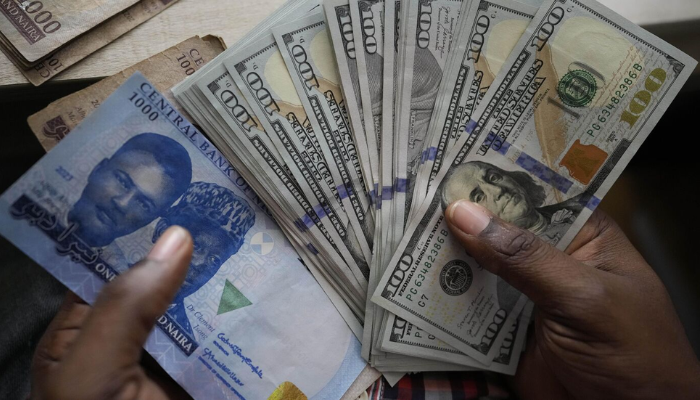Court Throws Out Nnamdi Kanu’s N50bn Suit Against FG

A Federal High Court has dismissed the N50 billion suit filed by Nnamdi Kanu, the leader of the Indigenous People of Biafra (IPOB), against the Federal Government.
The suit was filed by Kanu in 2022, alleging that the Federal Government (FG) had infringed on his fundamental rights, especially in relation to his kidnap in Kenya and illegal extradition to Nigeria.
Kanu’s lawyers had also argued that the Nigerian government violated both national and international laws in his arrest and detention. In his case, Kanu requested for a N50 billion damages for the violation of his rights.
He also prayed for a range of reliefs, including his release from the custody of the Department of State Services (DSS) and an order restraining the FG from continuing his prosecution.
The case was widely publicized, as it followed Kanu’s dramatic arrest after he returned to Nigeria in June 2021.
The IPOB leader contended that his kidnapping in Kenya, where he had lived in exile, was unlawful and against international law. The contention was a cornerstone in the case, which sought to establish the terms of his return and ensuing legal processes.
But the case suddenly took a twist on April 10, 2025, when the Federal High Court directed the case to be struck out. The court held Kanu’s allegations lacked sufficient legal merit to warrant further hearing. The decision has been greeted with dismay and relief by some of Kanu’s followers while others have welcomed it, citing the uprightness of the legal process.
The case, which had been adjourned on several occasions, is a reminder of the ongoing political and legal controversy surrounding Nnamdi Kanu’s detention.
His supporters have continued to call for his release on the grounds that his trial is politically motivated, but the Nigerian government continues to be resolute in pursuing due legal processes in prosecuting the IPOB leader.
While Kanu’s lawyers remain to be heard on whether there will be an appeal, the judgment is a significant milestone in the long battle between the litigant and the judge. The decision has potentially wider ramifications on the same suits claiming damages on behalf of victims alleging they suffered unlawful arrest and detention.








